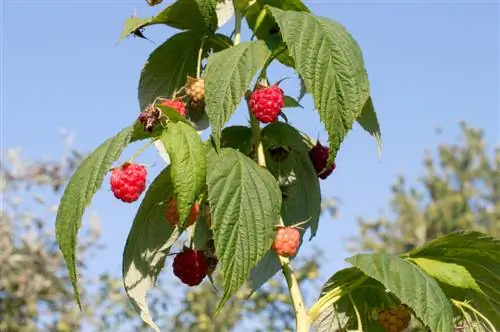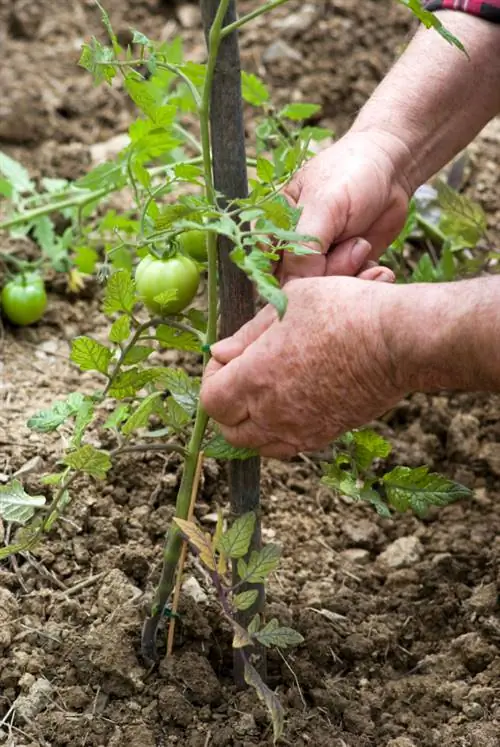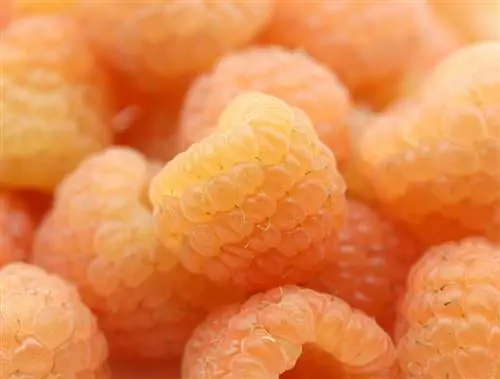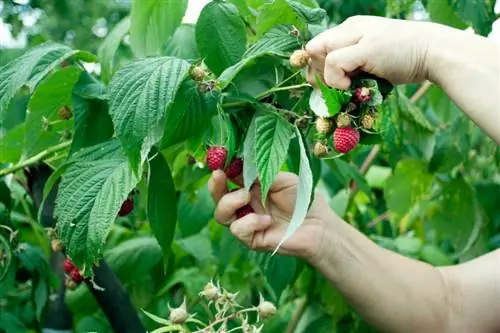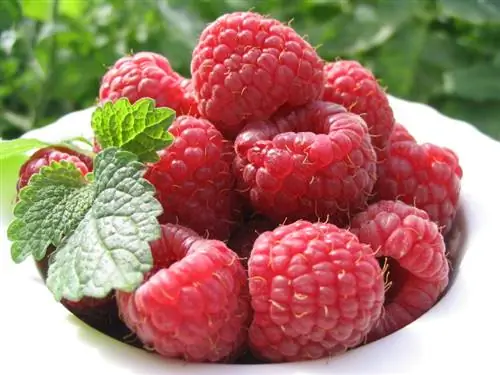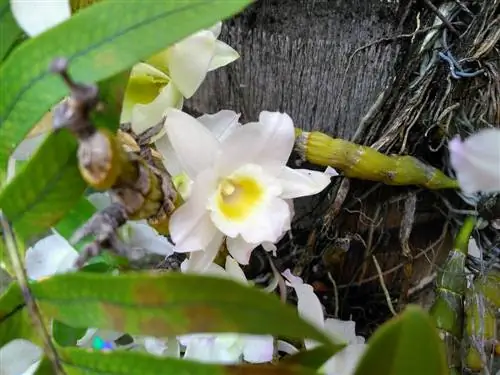- Author admin leonars@hobbygardeners.com.
- Public 2023-12-16 16:46.
- Last modified 2025-01-23 11:19.
Most raspberry varieties develop long, slender canes. Unfortunately, the shoots tend to bend to the ground when there is rain, wind or too much fruit. By tying them up you support the supporting rods and give them support.
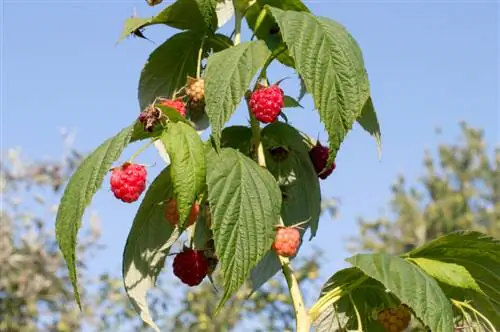
How to properly tie raspberries?
In order to tie raspberries properly, you need a framework such as a V-frame or wire cords. As soon as rods are longer than 0.5 meters, they must be attached to the scaffolding to ensure a stable hold. Use small wires, garden twine or special clips for tying.
Pulling raspberries on the scaffolding
If you want to plant raspberries in the garden, you will need to install scaffolding for most varieties. You attach the rods to this so that they don't tip over. This means the fruits get enough light and sun.
The following are suitable for tying up raspberries:
- V-Scaffolding
- Nodal frameworks
- Wire cords
- Bamboo sticks
Tying rods continuously
As soon as the rods have grown longer than half a meter, you should tie them to the bottom of the scaffolding. As the shoots grow taller, attach them to the higher levels of the scaffold.
To tie the rods, use either small wires or weatherproof garden twine.
There are also special clips for tying things up in stores. They do not constrict the shoots and can be easily attached and removed again.
Tie up summer raspberries
Summer raspberries are stabilized with a V-frame. This form of scaffolding offers a particular advantage. Attach the one-year-old shoots to one side of the “V” and the two-year-old shoots to the other side.
Since the fruits of summer raspberries grow on the two-year-old shoots, this measure makes harvesting easier. You only need to pick raspberries on one side.
After harvesting, cut off the two-year-old shoots. You can't go wrong because the one-year-old canes are on the other side.
Supporting autumn raspberries with scaffolding
Fall raspberries generally do not grow as tall as summer raspberries. With them, it may be enough if you stick brushwood or bamboo sticks between the plants to support them.
Low autumn raspberry varieties or two-timers can do without any supports. They are therefore also suitable for growing in pots on the balcony.
Tips & Tricks
If possible, you should avoid washing raspberries. The delicate fruits can burst open and lose a lot of their aroma. By tying the canes you prevent the raspberries from coming into contact with the ground. They then do not need to be cleaned separately.

